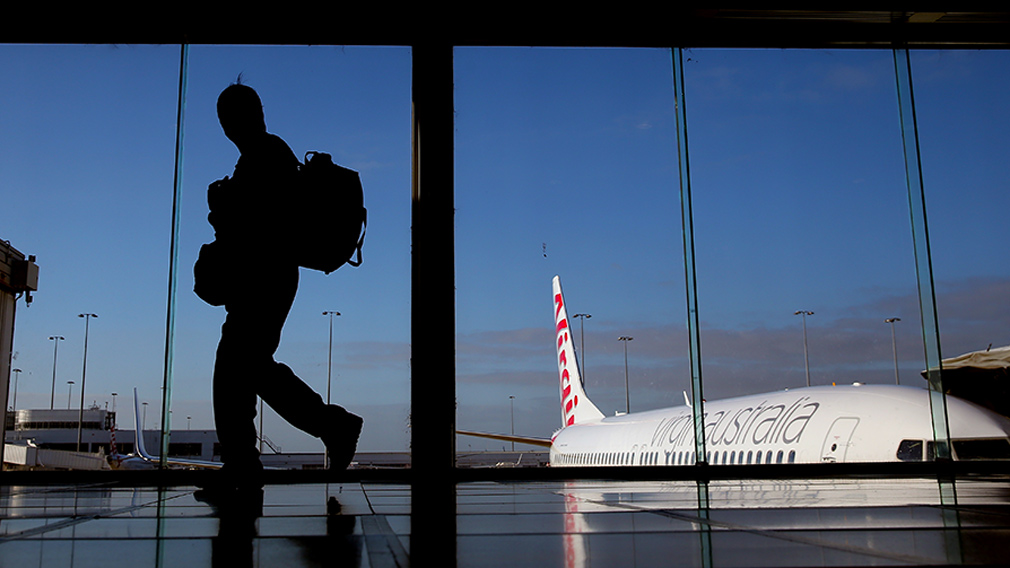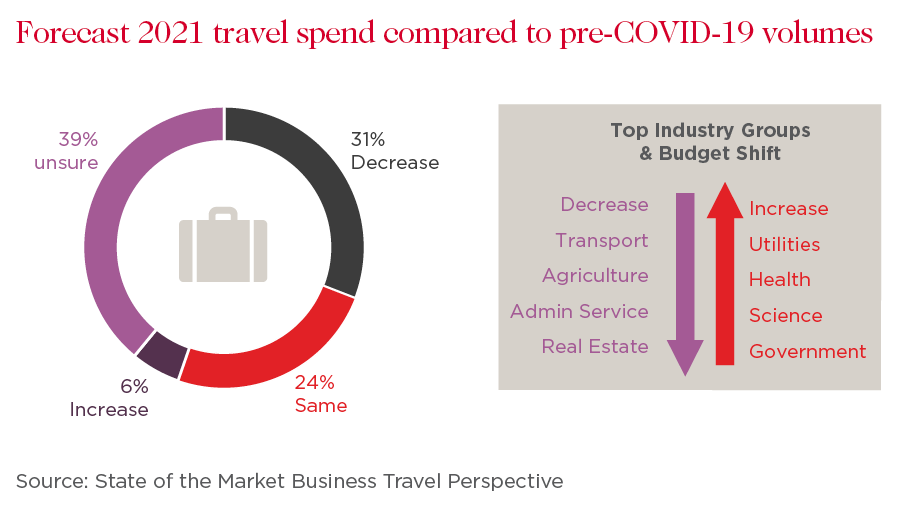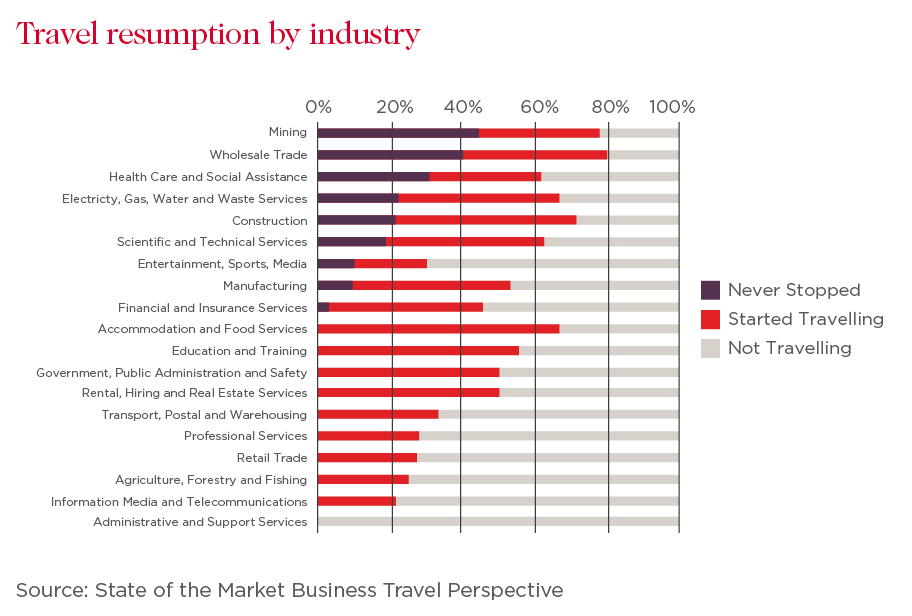Budgeting for business travel in a pandemic

A new report shows most small businesses are keen to resume travel to win new business. (Getty)
For most businesses, forecasting budgets is always a challenging mix of science and gut feel.
And that’s in a “normal” year.
During a global pandemic it’s a bit like looking into a crystal ball.
Businesses of all sizes have had to continually reforecast budgets as the operating landscape shifts with each major new government measure to help curb the health and economic impacts of COVID-19.
One budget line item that’s been particularly hard to predict has been business travel, as domestic border re-openings continue to be hotly debated and international re-openings are still a while away.
Although many businesses have benefited from a significant drop in travel expenses by replacing visits with video calls, we have found most are keen to resume face-to-face meetings with prospects and existing customers. In fact, 87 per cent of businesses said they wanted travel to resume to help win new business, according to our latest State of the Market report, a global study of around 2300 business travellers, travel managers and bookers into sentiment on business travel conditions as countries emerge from the COVID-19 crisis.
The survey also found 84 per cent wanted travel to resume to help manage existing customer relationships, while 62 per cent wanted to travel for conferences and events. More than 90 per cent of businesses said they plan to travel domestically and short-haul continental within three months of borders opening, although plans for long-haul travel remain uncertain.

While the appetite is strong for travel to resume, uncertainty around our travelling future makes it very tricky for businesses to forecast expenditure.
Almost 40 per cent of small businesses said they were unsure of their forecast travel spend in 2021 compared to pre-pandemic times. Just over 30 per cent of respondents said their spend will decrease by an average of 40 per cent; and 24 per cent said their spend will remain the same. Interestingly, 6 per cent said they will see an increase in travel by an average of 17 per cent.

To help small businesses find the middle ground when it comes to budgeting for travel in 2021, here’s a few tips:
1. Analyse your previous travel patterns
While next year isn’t guaranteed to return to a “normal” year when it comes to your employees travelling, it’s good practice to review how much of your business’ previous travel budget was allocated to sales trips, conferences and events, or managing a crisis, to help you make more informed decisions. Reputable travel management companies offer this type of customised analysis and reporting functionality.
2. Know what travel your organisation is expecting
Are there any conferences, trade shows, training or other major events that you send people to every year? Be sure to ask each of your departments on the likelihood of those events going ahead in 2021. You can budget for these, and if they do get cancelled, factor the cancellation in to your reforecasting process.
3. Get your travel policy sorted
If you don’t have a travel policy, this should be a priority. If you do, dust it off for a review. A good travel policy shouldn’t aim to lock employees into a rigid set of rules but help you prepare for the unpredictable by providing important behavioural guidelines that prevent confusion and overspending. Corporate Traveller’s guide to travel policies is a great place to start.
4. Control business travel costs
Work with your travel management company to check if you are getting the best deal possible with airlines, hotel providers and ground transportation.
5. Build in a contingency
As travelling in 2021 is surrounded in uncertainty, it’s a smart move to build in contingency budget in case borders open up quicker than expected. However, it’s important to remember contingency should be for the unexpected – it’s not for employees to overspend on travel.
6. Don’t stress!
Airlines continue to offer flexibility and your travel management company should be able to manage all aspects of your trips including if plans change. What this year has taught us all is that things can change rapidly. When it comes to budgeting, you need to be proactive, but also reactive. Plan as much as you can and lean on your travel management company for advice for when the travel landscape starts to shift.

